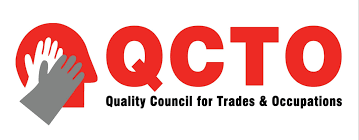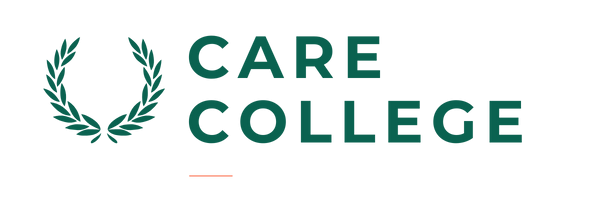Already Working in ECD? Turn Your Experience Into a National Qualification
Get Supported Through the Full Qualification with Credit for Your Experience
Write your awesome label here.
APPLY NOW
Funding Your Full Qualification Pathway with Manati
Why Manati is the Ideal Funding Option for Experienced Applicants:
- Available to all ages and foreign nationals
- Covers tuition fees, payable directly to Care College Repay while you study via transparent, affordable monthly instalments
- Assessments are based on combined household income
- Employed applicants act as their own sponsor
Write your awesome label here.
A Recognition Pathway Designed for Experienced, Working ECD Practitioners
SAVE TIME
If you are working in ECD, your verified experience can reduce the time needed for the workplace component — helping you complete the qualification faster.
ADVANCE YOUR CAREER
Get certified for what you already do. A formal qualification can open doors to better roles, promotions, and job security.
COST EFFECTIVE
Save money by focusing only on the learning you still need. Your experience counts — no need to repeat what you already know.
GAIN RECOGNITION
Turn your hands-on experience into an accredited qualification and gain recognition as a skilled ECD professional.
From Experience to Accreditation in 4 Steps:
Step 1: Apply & Complete Entry Test
Apply for the full qualification pathway and complete our entry test. Passing this assessment is required to qualify for the process.
Step 2: Skills Assessment & Portfolio Submission
We’ll conduct a skills assessment where you’ll submit a Portfolio of Evidence (PoE) from your current workplace to demonstrate your experience.
Step 3: Complete Summative Exams
If your evidence is sufficient, you’ll proceed to complete 7 theory summative exams aligned with the QCTO curriculum.
Step 4: Certification & EISA Registration
Once found competent in all modules, you’ll receive your official Statement of Results (SOR). We’ll then submit you for the next External Integrated Summative Assessment (EISA).
Skills Assessment - R750
SUMMATIVE ASSESSMENTS - R1 500 PER ASSESSMENT
EISA EXAMINATION - R500
Your Roadmap to a National Qualification
Skills Review
We start with a short, meaningful assessment to understand your experience and strengths. This helps us see if you're ready to begin the ECD qualification via our recognition-supported pathway — and where you may need extra guidance.
Build Your Portfolio
You'll compile a Portfolio of Evidence (PoE) showing your current work experience, prior training, and supporting documents (like references or photos of your work with children). We guide you through what to include and how to submit it.
Complete Your Summatives
You’ll complete 7 structured assessments aligned with the knowledge modules of the Occupational Certificate: ECD Practitioner (NQF Level 4). These are based on what you already know from your day-to-day work — not new classroom theory.
Write Your Eisa
After completing your assessments and PoE, you’ll be registered for the national External Integrated Summative Assessment (EISA) — the final exam set by the QCTO. This confirms your competence across all areas of the qualification and is required for certification.

What is Recognition of Prior Learning (RPL)?
Frequently asked questions
Am I eligible for this pathway?
QCTO does not currently offer a standalone RPL route for this qualification. However, if you're working in an ECD setting with relevant experience, you may qualify for our recognition-supported pathway that helps you complete the full ECD qualification while crediting your prior knowledge and skills.
What kind of evidence do I need?
You’ll need to provide proof of your experience — such as employment letters, testimonials, previous training certificates, or work samples (e.g., lesson plans, reports). We’ll guide you in compiling a Portfolio of Evidence (PoE).
How long does the process take?
This depends on how much experience you already have and how quickly you complete the assessments. On average, learners complete the programme in 6–12 months. The pace is flexible and suited to working professionals.
Is my qualification valid nationally?
Yes. This qualification is issued under the Quality Council for Trades and Occupations (QCTO) and is recognised across South Africa.
Can I apply if I have partial experience in a field?
Yes. You don’t need to have formal training — but you must be working in an ECD environment. If you have limited experience, we may recommend completing additional learning to meet the full requirements.
What happens if my evidence is not sufficient?
We’ll provide feedback and support you in closing any gaps. This could include additional assignments, guided practice, or evidence collection to help you meet the qualification standards.
What is the EISA exam?
The EISA exam is administered as a final evaluation of your competencies. It tests both theoretical knowledge and practical application. Passing requires a strong understanding of the course material and proficiency in applying ECD principles in real settings.
What happens if you fail the Eisa?
If you do not pass, you’ll have the opportunity for remedial support and, a chance to retake the assessment. We’re here to help ensure you succeed.
What happens if you fail the Eisa?
If you do not pass, you’ll have the opportunity for remedial support and, a chance to retake the assessment. We’re here to help ensure you succeed.
Are there scholarships, bursaries, or student loans for this qualification?
Eligibility Criteria
Who qualifies for a Manati student loan?
Loan Features
What can the loan be used for?
How much can I borrow?
Loan amounts are based on the course cost and other eligibility factors reviewed during application.
What is the repayment plan?
Pay while you study with affordable, transparent monthly instalments.
Who qualifies for a Manati student loan?
- Open to all ages and foreign nationals. Recommended for RPL applicants.
- Household income is assessed on a combined income basis.
- Clean credit history required (credit checks performed).
- If employed, you can act as your own sponsor. If unemployed, you’ll need a sponsor (such as a parent, guardian, or family member) to support your loan application.
Loan Features
What can the loan be used for?
- Covers tuition fees for your Care College course. Funds are paid directly to Care College upon approval.
How much can I borrow?
Loan amounts are based on the course cost and other eligibility factors reviewed during application.
What is the repayment plan?
Pay while you study with affordable, transparent monthly instalments.

